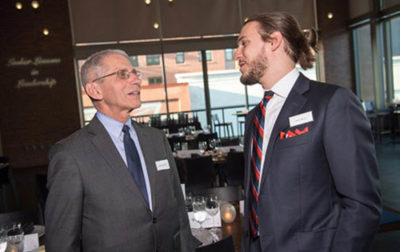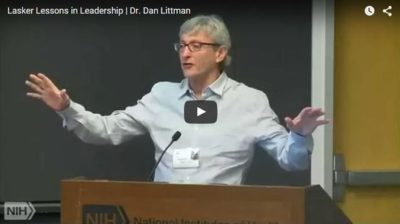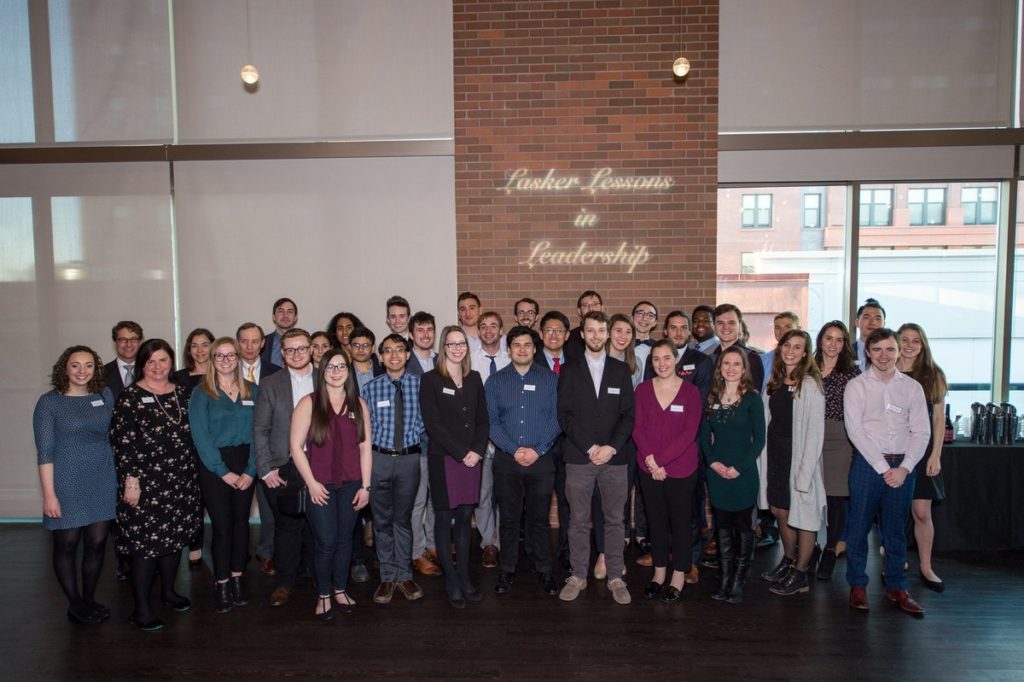Does any young professional have more career choices than a scientist who is finishing his or her PhD? There are postdoctoral appointments, of course, but in what type of lab? And beyond those, there are seemingly limitless opportunities in science and medical communications, business and innovation, and government.
Samuel Katz, who is wrapping up his PhD in the NIH Oxford-Cambridge Scholars (OxCam) program this year, finds himself at this very crossroads. The OxCam program offers accelerated training for PhD and MD/PhD candidates who divide their time between labs at the National Institutes of Health (NIH) and the University of Oxford or the University of Cambridge. Although he knows he wants to do a traditional academic postdoc, he is grappling with whether to look for a big, established lab or more of a startup group and with whether to continue working in the areas he is passionate about (systems biology and immunology) or try to prove himself in a different field.

Anthony Fauci (left) and Samuel Katz (right)
The latest installment of the Lasker Lessons in Leadership gave Katz fresh insight into tackling this all-important decision. The Lasker Lessons are biannual presentations from preeminent scientists held in collaboration with the International Biomedical Research Alliance and the OxCam program. The talks arm these students with advice for navigating careers in science.
For the tenth Lasker Lesson, on March 12, 2019, Katz and his colleagues in the OxCam Program listened to a dialogue between Anthony Fauci and David Rubenstein about research, health, and careers in science. Fauci, a 2007 Lasker Public Service laureate who serves as Director of the National Institute of Allergy and Infectious Diseases, was interviewed by Rubenstein, a financial and philanthropic leader who hosts the popular David Rubinstein Show: Peer-to-Peer Conversations. Fauci recounted landing at the NIH early in his career as a physician, learning to do research, and discussed his subsequent journey to becoming a leader in developing global health policy.
What struck Katz about the interview were Fauci’s comments about following his gut in deciding which opportunities to pursue and which to decline. Fauci has taken on numerous responsibilities in addition to running a research group in NIAID, yet “he seems to have found that perfect distance where you’re not withholding your contributions to the community, but also you’re not too far away from what gets you excited every morning,” Katz said. It made Katz realize that he needs to hone his own gut-check system and determine for himself, “What is the thing I’d be too sad to be far away from?”
In addition to encouraging the OxCam students to follow their passion, Fauci spoke to them about the importance of being open to the unexpected opportunities that inevitably arise. As he explained after the event, “My own career path took many twists and turns that I never would have predicted during my early training,” Fauci said.
Erin Coonahan, another OxCam student, took a turn in her career path about a year and a half ago when she decided to go to medical school after obtaining her PhD. During the NIH stage of her graduate research, Coonahan realized she wanted a career where she could make scientific discoveries, specifically in developing diagnostic tools and sensors, but also see patients who benefit from these discoveries. The interview with Fauci, who has his feet planted in both the research and the clinical worlds, helped reassure Coonahan she was making the right decision.
“At this stage in our career, it feels like we have a lot of decisions to make, and there’s a lot of uncertainty and not a lot of confidence in the decisions we are making,” Coonahan said. “Hearing stories of really successful people say, ‘I didn’t know what I was doing,’ is helpful,” she remarked, adding that she often feels both comforted and inspired by the Lasker Lessons.

Dan Littman
The Lasker Lessons expose OxCam students to scientists of all stripes, and these interactions have turned some onto new career paths. Joanna Cross, who received her PhD from the OxCam program in 2017, recalls the fateful 2015 Lasker Lesson with Dan Littman, molecular immunology professor at New York University. His comments about the importance of telling a story in penning scientific papers, as well as the panel discussion with journal editors following his talk, “sowed the seeds for me becoming a science writer,” Cross said. She will pursue this path after she finishes her postdoc at the NIH.
Although the Lasker Lessons were just starting out when Aaron Neal graduated from the OxCam program in 2015, he could see it was already becoming a key part of student life in the program. The Lasker Lessons can have a formal feel to them — they are held in event spaces on and off the NIH campus, many attendees wear suits — “but the discussions are more frank than at scientific conferences and the ilk,” said Neal, who now holds a position at NIAID managing scientific activities for international collaborations. “You can get a more real perspective about how these very successful scientists have gotten to where they are,” he added.
The Lasker Lessons are important for showing young scientists the vast number of career options before them, but Fauci also hopes they will help students realize that no decision is the end-all. “What you do next will never determine everything,” Fauci said. “Science provides one of the most pluripotent careers imaginable.”

OxCam students at the Lasker Lessons in Leadership event March 12, 2019
All Lasker Lessons are video recorded and posted online, including the most recent one with Fauci.
by Carina Storrs
